This website uses cookies
We use cookies to ensure that we give you the best experience on our website. If you continue to use this site we will assume that you are happy with it.
Since the launch of the Cornell Legal Aid Clinic in 1960, Cornell Law School has helped students move beyond the classroom into the world of practice. A variety of courses provide students with opportunities to assume the role of advocate on behalf of real clients with real legal problems. Experienced faculty supervisors work closely with students to assist their development into excellent, ethical professionals. Today, through more than 20 clinics and practicum courses, most Cornell Law students develop as client counselors, litigators, and transactional lawyers while serving the public interest locally and around the world.
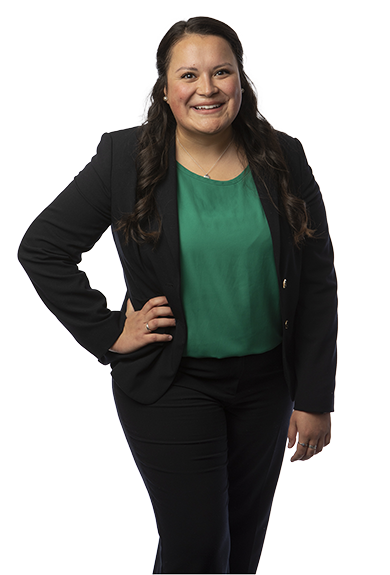
Being a global law school located in a rural area that has few public interest lawyers allows students to combine unique local partnerships with a national and international scope. We also have strong collaborations with other schools within Cornell University, including the School of Industrial and Labor Relations, the S.C. Johnson College of Business, and Weill Cornell Medicine. These cross-disciplinary connections allow Cornell Law students to work in teams bringing multiple skill sets to bear on complex problems.
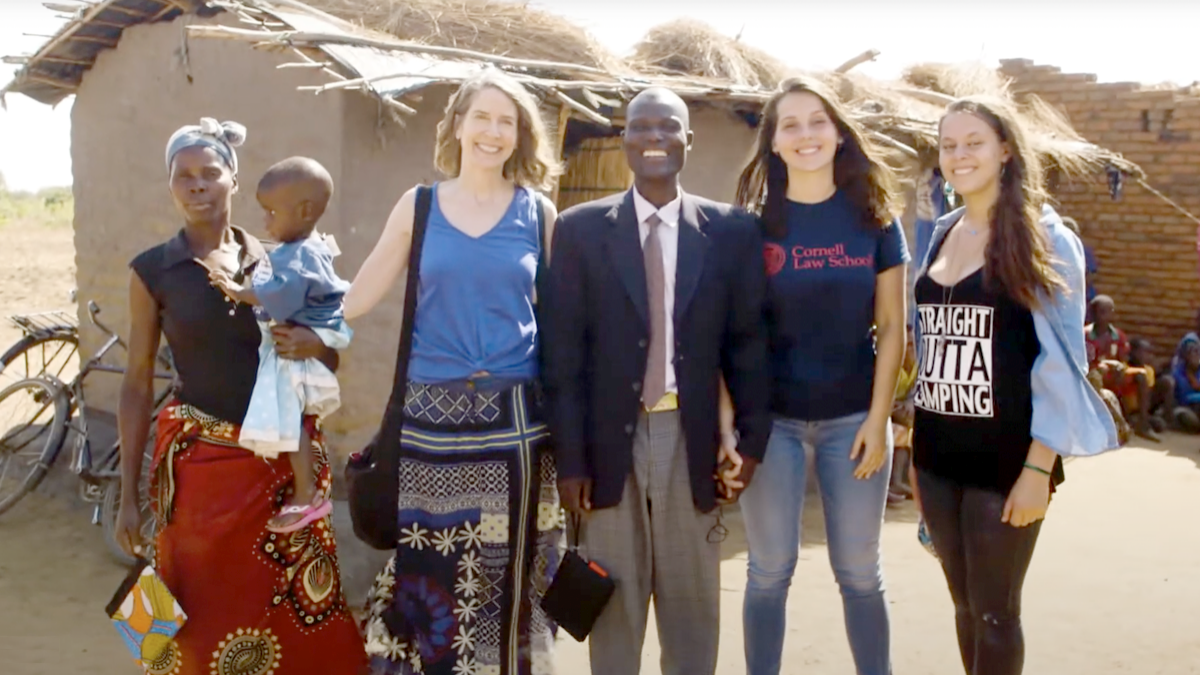
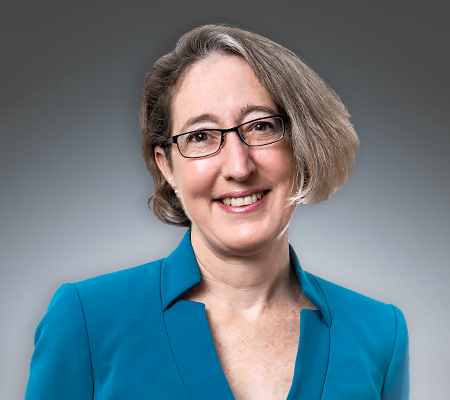
Beth Lyon
At Cornell Law School, our students are provided with both a strong doctrinal program and a rigorous and varied set of clinical, advocacy, and skills courses. For many of our students, these courses provide the most rewarding and self-revelatory experiences of their law school experience. Cornell Law has long introduced students to the sort of experiential learning that, especially when it occurs in real-life settings, constitutes the core of a student’s professional development.
A.D. White said that he wanted Cornell’s Law School to provide “Legal training in which Legality shall not crush Humanity.” His hope—as he expressed it in 1887—was that this law school would produce “not swarms” of lawyers, but a “fair number of well trained, large-minded, morally-based lawyers.” A.D. White hoped that Cornell lawyers would “become a blessing to the nation, at the bar, on the bench, and in various public bodies.” As his words make clear, public service has been an intrinsic part of Cornell Law School’s mission from the very beginning, and an important way in which we keep faith with that founding commitment is through our law clinics. In 1960, newly minted Law School alumna Betty Friedlander launched the Cornell Legal Aid Clinic, a student pro bono effort that expanded into for-credit courses in the early 1970s. Through the clinic, students worked closely with faculty and local legal services attorneys to represent low-income Tompkins County residents, providing them with much-needed access to justice.
Through our longstanding commitment to skills education and public service, we and generations of students have built a program that is working at the cutting edge of pressing legal issues. Our clinical program includes a broad array of clinical experiences for students and also provides needed legal services to underserved communities locally, nationally, and internationally. Our current programs include clinics taught by full-time members of the faculty, additional practicum courses supervised by experienced practitioners serving as adjunct professors, and a number of intensive externships and field placements.
I am fortunate to have the opportunity to work with Dean Ohlin and our exceptional clinical faculty as we continue our commitment to provide practical skills training to our students and access to justice for our clients. In these challenging times, Cornell Law School’s commitment to supporting our students in their development and in their legal service to the community is unwavering.
Beth Lyon
Associate Dean for Experiential Education and Clinical Program Director

Beth Lyon
Associate Dean for Experiential Education and Clinical Program Director
Farmworker Legal Assistance Clinic and Codirector Low-Income Taxpayer Law and Accounting Practicum
Cornell Law School
156 Hughes Hall
Ithaca, NY 14853-4901
(607) 255-4196
Fax: (607) 255-8887
mbl235@cornell.edu
April Denman
Clinical Programs
Administrative Manager
129 Hughes Hall
Ithaca, NY 14853-4901
(607) 255-2552
asd5@cornell.edu
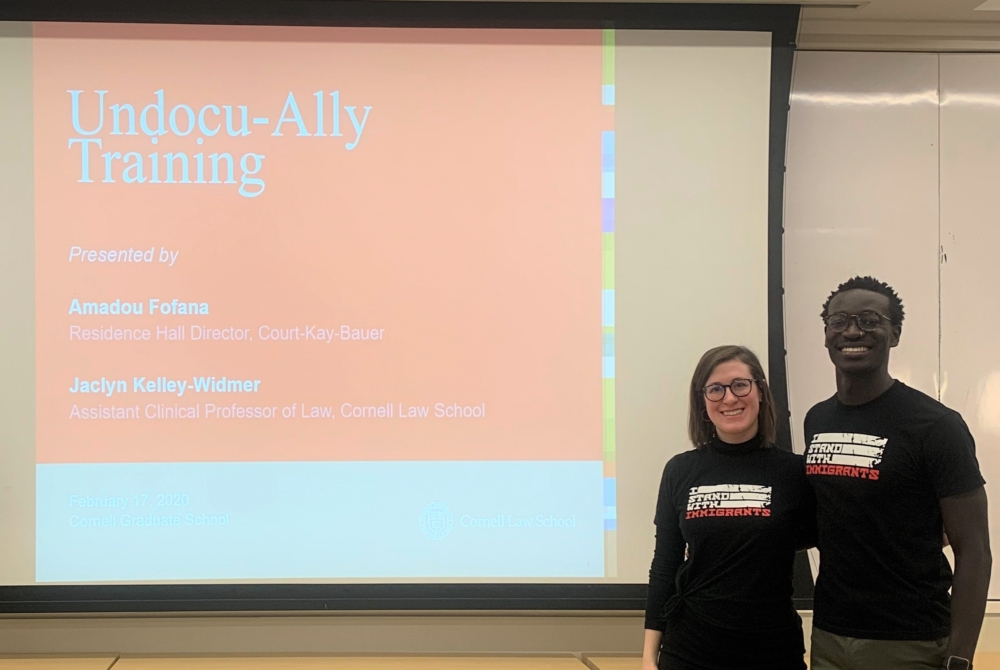
From left: Professor Jaclyn Kelley-Widmer and copresenter Amadou Fofana give an Undocu-Ally training to Cornell staff in February 2020.
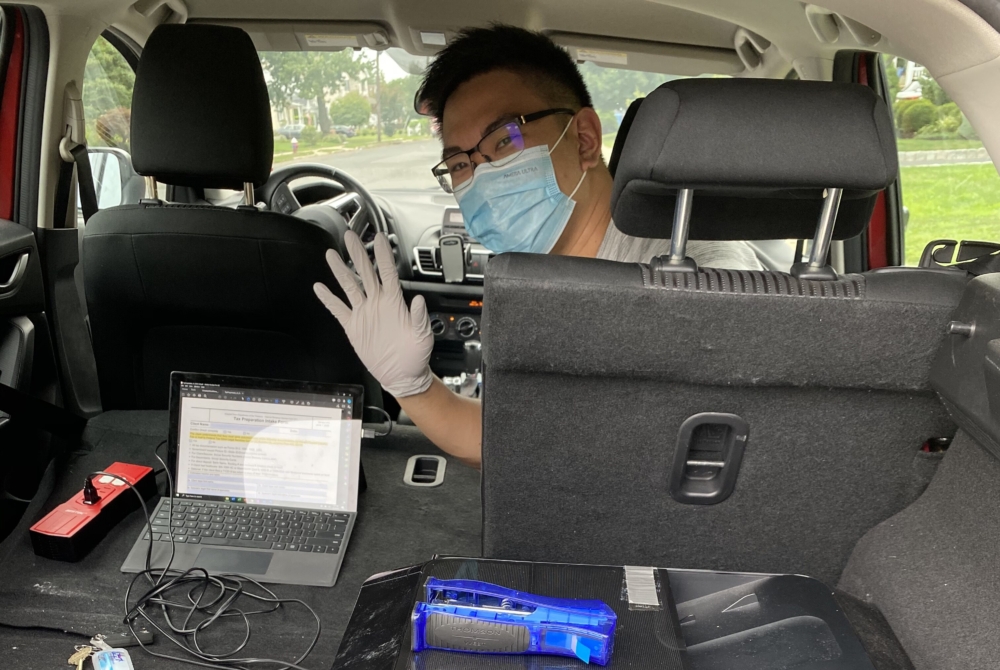
A student in the Low-Income Taxpayer Law and Accounting Practicum does tax prep during the COVID-19 pandemic.
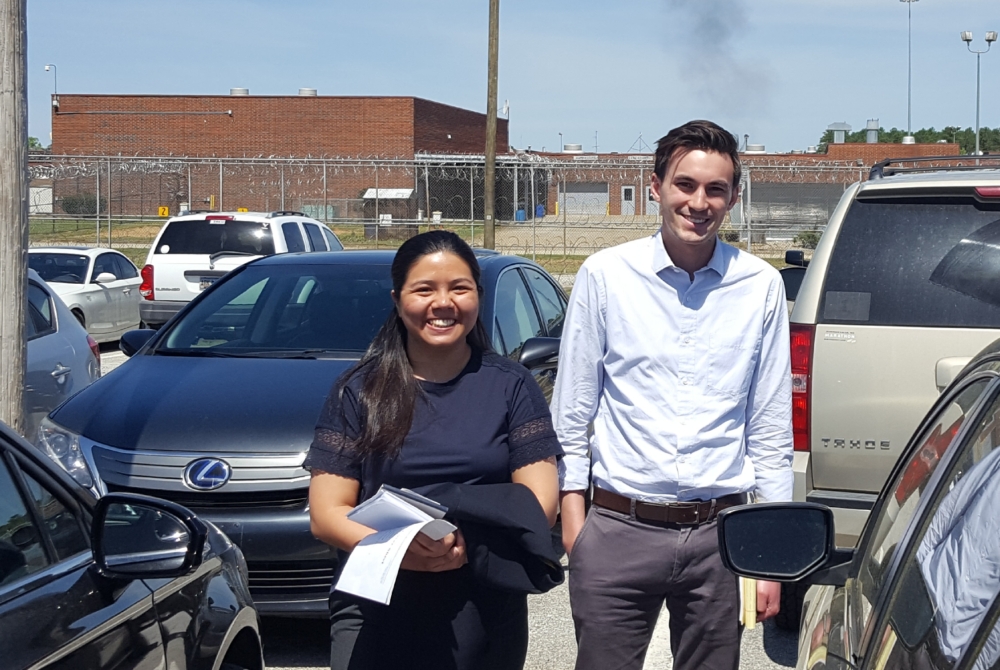
Clinic students Rohini Tashima and Andrew Guiang getting ready to interview clinic client Billy Kelly.
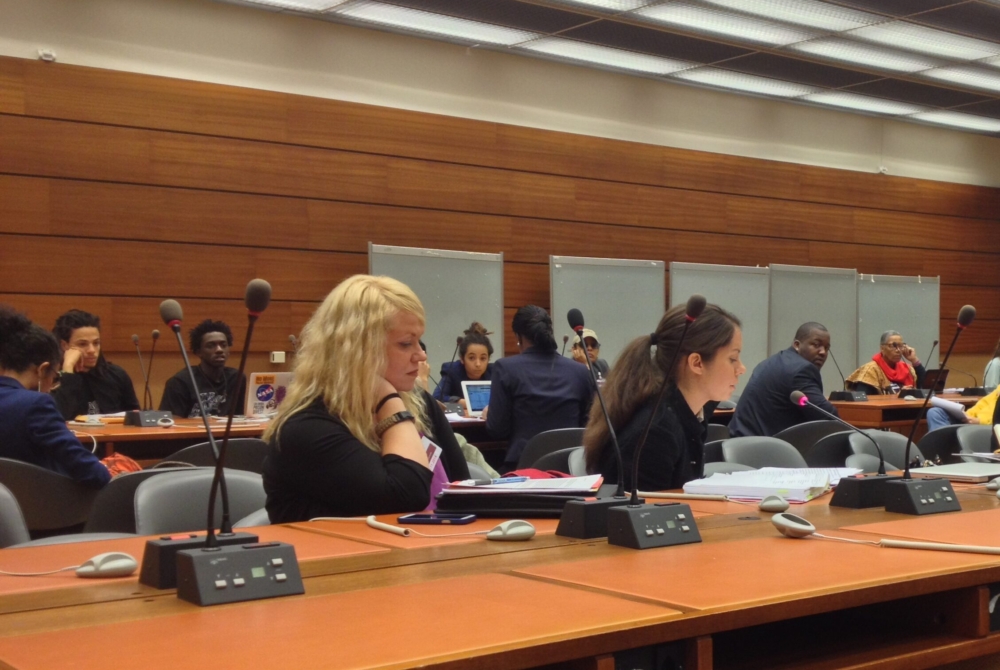
Clinic student Florence Seaman, J.D. ’16 (foreground center), with clinic client Stephanie Schroeder (foreground left), presenting on the issue of military sexual assault during the U.N. Committee Against Torture’s review of the United States in Geneva, Switzerland.
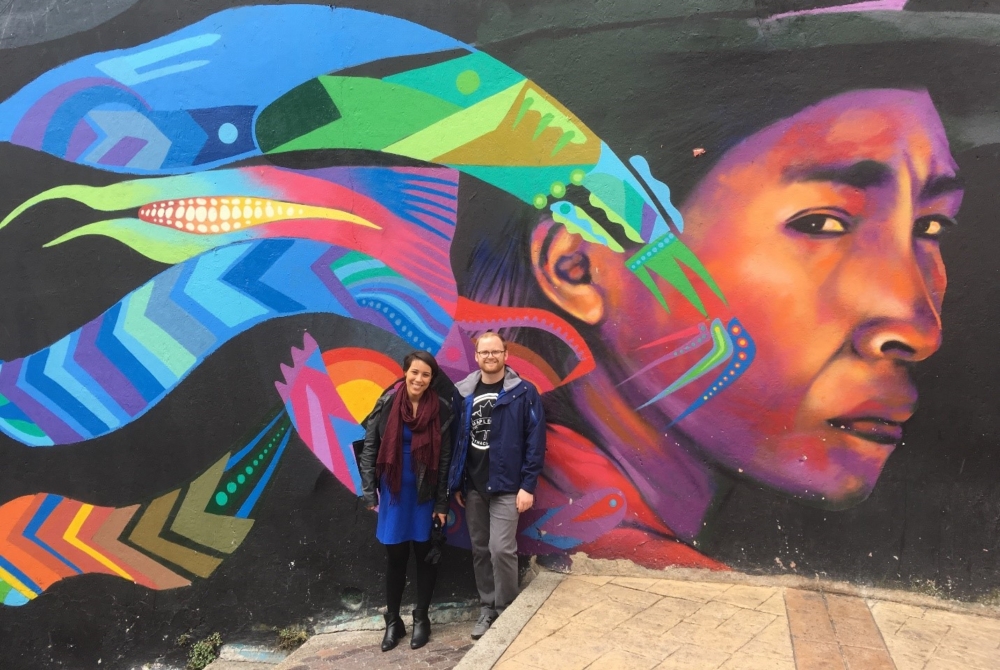
Victoria Inojosa and Matt Lutwen working on a submission to the U.N. on Freedom of Association in Colombia.
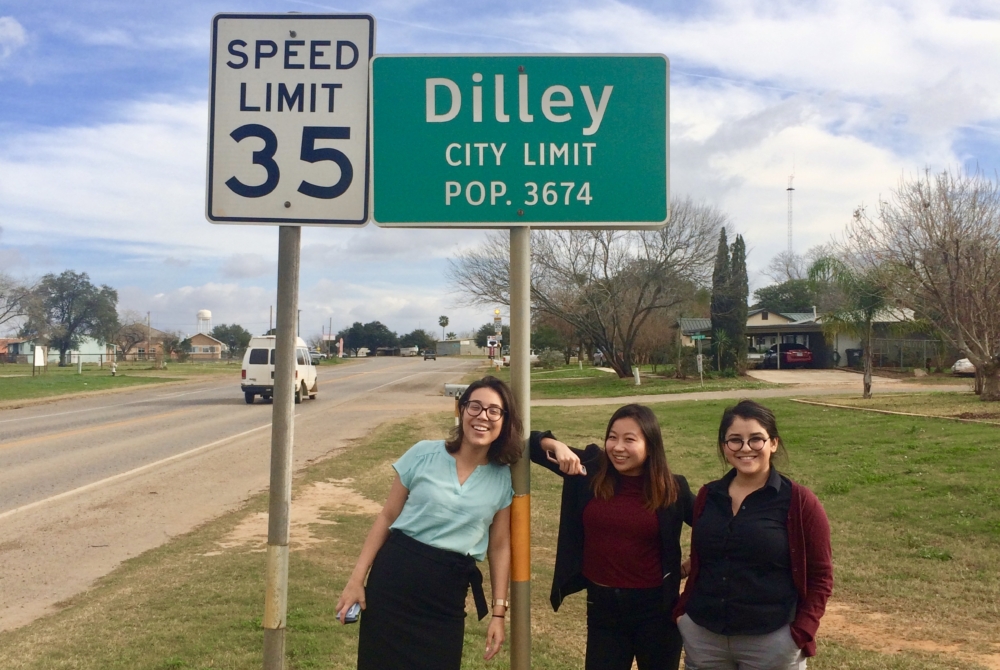
Victoria Inojosa ’19, Linda Lin ’21, and Diana Caraveo Parra ’20 in downtown Dilley, Texas, in January 2019, as part of a trip by the 1L Immigration Law and Advocacy Clinic’s where they volunteered at the country’s largest family detention facility, assisting asylum-seekers with their legal cases.
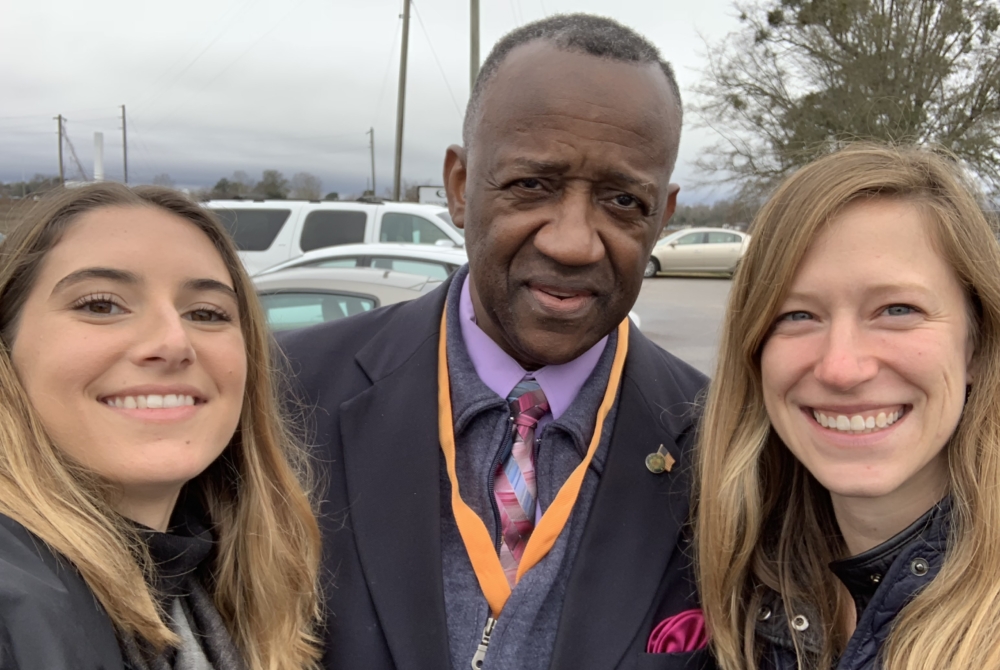
Capital Punishment: Post Conviction Litigation Clinic students Alessandra Scalise (left) and Amelia Hritz (right) interviewing Rev. Delaine in South Carolina while working on the Anthony Woods case.
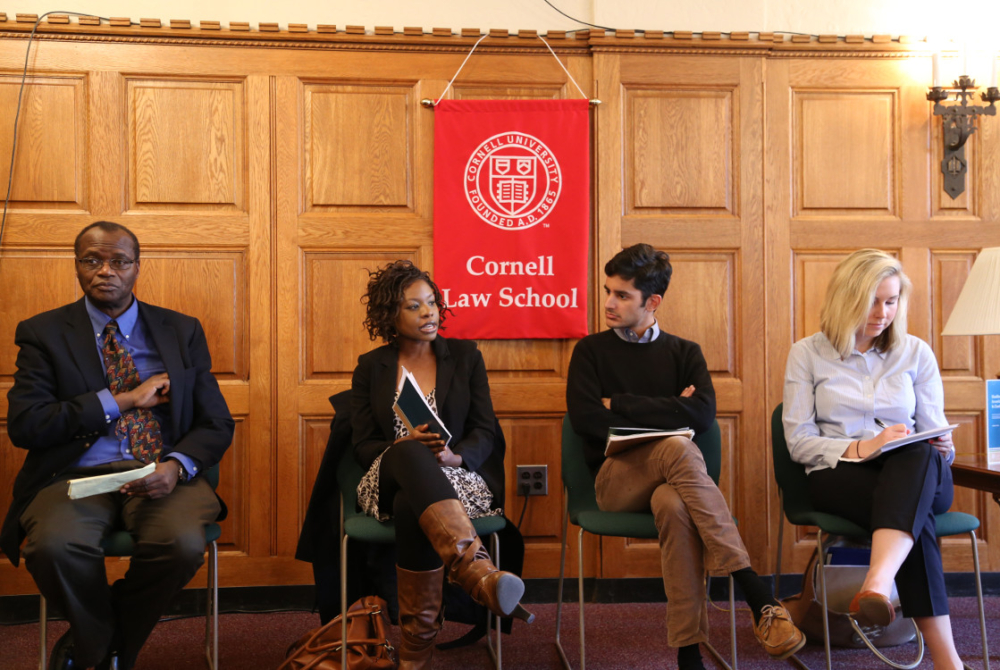
From left: Professor Muna Ndulo; Tinenenji Banda, J.S.D. ’16, LL.M ’07; Christopher Sarma, J.D. ’15; and Amy Stephenson, J.D. ’15, present on the Gender Justice Clinic’s coauthored handbook on Zambian juvenile justice law.
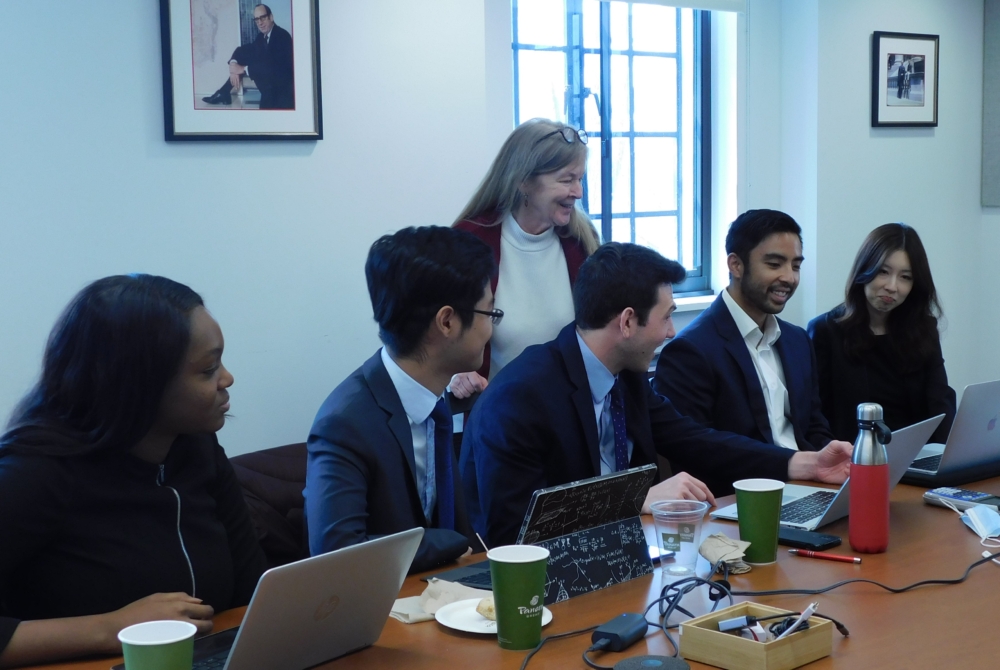
Students in the Securities Law Clinic conduct a mock mediation with Adjunct Professor Birgitta Siegel.